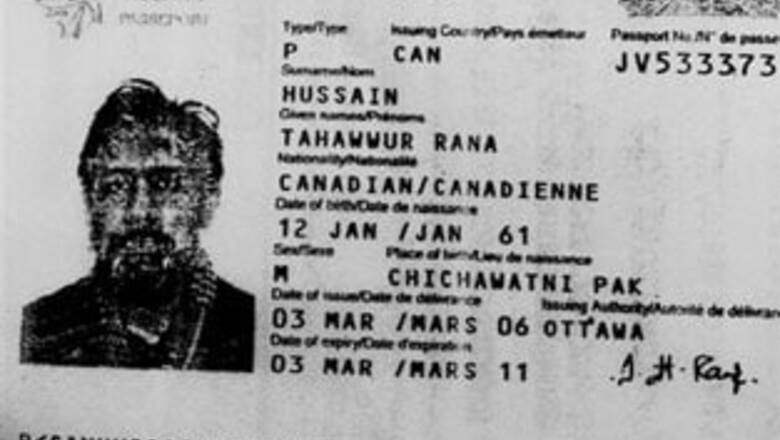
views
Chicago: Pakistani-Canadian terror suspect Tahawwur Hussain Rana, under investigation for possible links to 26/11 Mumbai terror attacks, has said in his bail plea that he is a deserter from the Pakistani army and therefore is not a flight risk.
Rana, arrested for plotting to attack a Danish newspaper made the plea before US District Judge Matthew Kennelly in a Chicago court on Wednesday making a bond request that has already been denied by another federal judge. Rana contended that because he deserted the military and isn't welcome back in Pakistan, he's not a flight risk and should be released on bond.
But judge Kennelly postponed a decision on Rana's bond pending a new indictment against the suspect, which prosecutors say could come by January 14. That indictment could send the case to a different judge, hence the delay in ruling on bond.
Federal prosecutors say he should remain behind bars because he knew about plans to commit terrorist attacks on Mumbai in 2008 that resulted in 166 deaths.
In affidavits filed in federal court, the FBI said Rana,48, co-conspirator of Lashkar-e-Taiba operative David Headley, "knew in advance" about the 26/11 Mumbai attacks after which he "complimented" the Pakistan-based terror outfit.
It is unclear whether the federal grand jury indictment that the government promises before Jan 14 will include additional terrorism charges against Rana. Rana's attorneys say that the allegations are serious, but maintain the defendant's role as alleged in the complaint is comparatively minor, given the scope and purpose of the supposed plot.
Regardless, the motion filed by Rana's lawyers provided new details about his background-including Rana's admitted desertion from the Pakistani army.
"Defendant's Pakistani background should raise no concerns whatsoever regarding risk of flight," it said suggesting that while serving as a physician in the Pakistani military Rana suffered from two high altitude conditions as he was transported to high elevation in the Northern Areas of Pakistan without proper acclimatisation.
Rana then requested and was granted leave to seek medical treatment and subsequently flew to England for treatment, the motion said. Rana's extended treatment forced him to overstay his leave, making him a de jure deserter from the Pakistani military.
"Defendant has not returned to Pakistan since, and any attempt to flee to Pakistan would be met with incarceration and court martial proceedings. As such, Defendant presents no risk of fleeing to Pakistan because to do so would only change the location of his detention," the motion said.
"Furthermore, the United States and Pakistan have a long standing bilateral extradition treaty, so any attempt to flee to his home country would ultimately be in vain," it said.




















Comments
0 comment